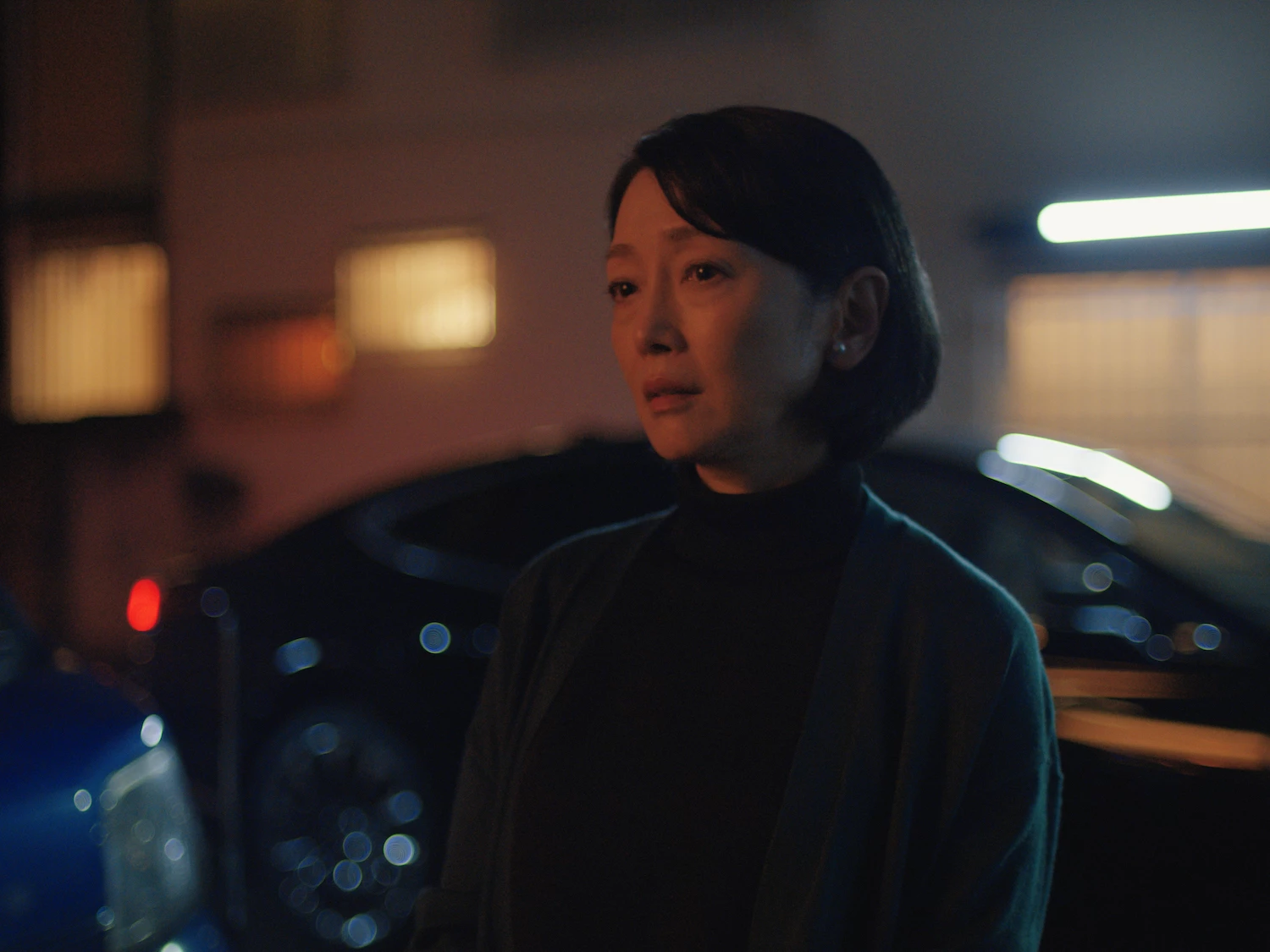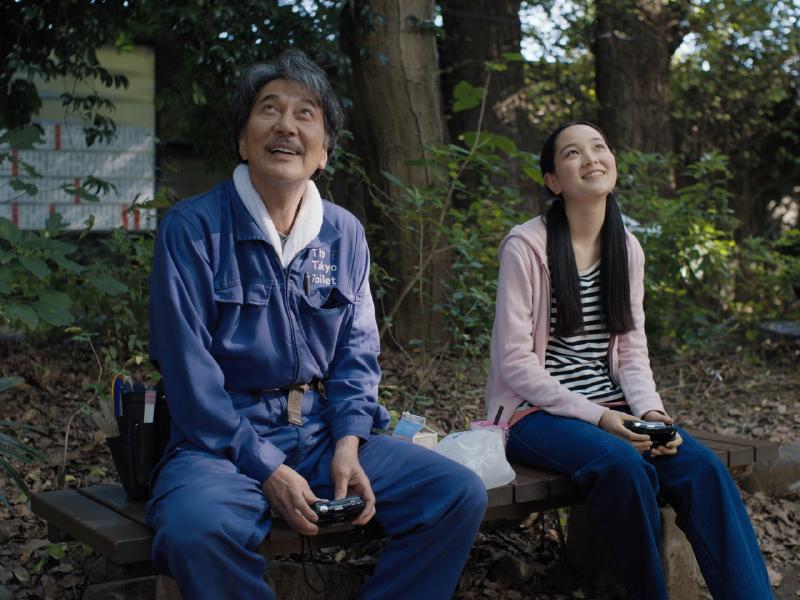Hirayama has a strict daily routine that he adheres to. Each day begins with him waking up to the sounds of his neighbor sweeping, and is punctuated with a black and white dream, recalling the light and shadows he encountered throughout the day. He works as a janitor, cleaning beautiful, unique public restrooms around Tokyo. After work, he visits the bathhouse to clean up, and has dinner at the same restaurant. On weekends he sleeps in, does laundry at a laundromat, and visits the film shop where he drops off a roll of film, buys a new one, and picks up the prints made from last weeks roll.
He doesn’t say much, in fact, the first line of dialogue in the film comes several minutes in, and is from his young, immature co-worker, arriving late to work. The film is mostly sound tracked by the sounds of everyday life, the only music coming from the cassette tapes he listens to on his commute.
He’s very meticulous, and it’s clear that over the years, he’s developed habits that help him go throughout his day. Every morning he puts away his bedding, brushes his teeth, trims his mustache, and tends to his collection of saplings. He pockets his everyday carry items from a shelf by the door, right where he left them the day before. He buys a can of coffee from the vending machine outside his apartment, before driving off to work, where he opens his van and grabs his tools, all of which are at the ready so he wastes no time.
The film is largely influenced by the Japanese term “Komorebi”, which describes the light filtering through trees, creating unique shadows on the ground and walls beneath them. It encourages an appreciation of the mundane, taking solace in the moments of beauty found in everyday life. Hirayama is constantly looking up during any moments of respite, appreciating the way light interacts with his environment.
Hirayama carries an Olympus point and shoot film camera loaded with black and white film in his shirt pocket. Everyday during lunch, he visits a shrine where he sits on a bench to eat his convenience store sandwich with a carton of milk, looks up, and takes a snap of the light filtering through the tree branches above him. He’s a bit embarrassed when someone notices him do this, but he can’t help it, he simply has to take the photo, it’s part of his routine.
This really resonated with me in a way I didn’t expect. In my photography work, I’ve found that I’m most drawn to these unique interactions of light. Glowing walls painted with unique shadows, the sun perfectly positioned to cast a ray of light directly on a particular area, the beauty in the mundane. It’s easy to get lost in the extraordinary, especially in a noisy environment like Tokyo. Often times we chase an idealized version of a perfect scene. A person perfectly positioned in the frame, wearing the right colored clothing, at the exact time when the light is in the right spot. But light is always changing, these moments are fleeting and might not be in the “right” place at the “right time”. But if you chase the light, you’ll find that these “perfect” moments are constantly happening. Maybe not in the way you envisioned, but light and shadows are always doing something interesting somewhere, you just have to find them.
It’s hard to say if Hirayama is content with his lifestyle. He doesn’t seem to have many friends, but he’s formed relationships with the people he encounters often. The bookshop owner, the woman who owns the bar he frequents, the chef at the restaurant he has dinner at every day. But Hirayama is certainly comfortable in his routine, the few times it’s been broken has led to frustration. Hirayama is looked down upon for his work, despite the level of care and attention he puts into it. His niece visits him at some point, having run away from home after having a fight with her mom. She’s the only one who’s able to get him out of his shell, and he speaks a lot more when he’s around her. He takes photos of her, and she takes interest in his life, enthusiastically partaking in his routine. When his sister comes to pick her up, it’s in a nice car with a personal driver. She asks him if he’s really cleaning restrooms for a living, to which he quietly nods, causing her to tear up. The class differences between them are clearly apparent, and it’s implied that he does not have a good relationship with his father while she does, which could’ve played a role in the way their lives turned out.

Not every day is perfect. Some are good, some are bad, and sometimes you need a couple beers and a cigarette, even though you haven’t smoked in years. But Hirayama still finds moments to appreciate. He focuses on the present. As he tells his niece, “Next time is next time. Now is now”.
